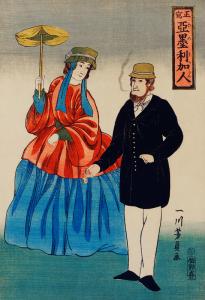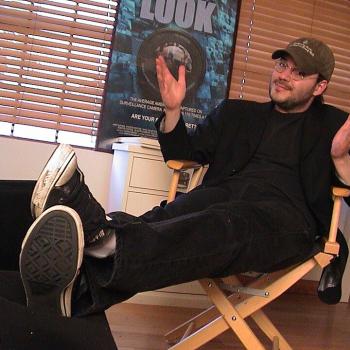
Source: Flickr user Rawpixel Ltd
License
Help me find the golden mean. One end, draped in the ole stars and stripes and buttressed by the Hollywood money machine, resounds with a chittering, echoing ad infinitum: “superhero movies are our modern-day myths!” On the other side, a portly gourmand and his rail-thin, mustachioed compatriot, clap their hands together gently but with feeling: “an exercise in style!”
I’m with Scorsese more than not on this one, I think. But it’s worth investigating that commonplace, the idea that we like watching men in tights blow up universes because we’ve given up on Achilles. If by this we mean that we draw our moral principles from these stories, we’re even more doomed than I had previously thought (one of Marvel’s most prominent artists, Steve Ditko, was a Randian objectivist for starters). If it merely means that we like these stories, we may finally be getting somewhere. As a broad society of viewers, we may finally be admitting we value story and its plotting above all else. I’m sure Sophocles would love to know that the myth of Antigone is about, well, what and how things went for Antigone. When we say we want myth, do we actually just mean “plot”? Has it always been so?
I started puzzling over this problem recently while watching Seijun Suzuki’s Gate of Flesh (1964). The story here is barebones: a street urchin named Maya (Yumiko Nogawa) narrowly avoids sexual slavery by joining up with a pimp-less gang of prostitutes in a shanty town in the bowels of post-WW2 Tokyo. These are ruthless businesswomen scraping by. No sex if it’s not for money. If you break the rules, bad things happen. You might, for example, get your hair slashed off and find yourself viciously beaten and tied naked to a plank in the middle of a river. Yet, the film’s not all that easy to follow. It eschews standard plotting in favor of evocation.
If you wanted to be dismissive, cheeky, or just jargonistic, you could call this a formalist film. The different prostitutes wear boldly colored outfits, set against matching, theatrical sets. The girls sing about love and fate in scenic forests that, in this world, could only be the product of dreams. We bounce from setting to setting with nothing between the gaps, wipe cuts pulling us from a bumbling, earnest Black Catholic priest wandering the ruins to grizzled workers singing the Internationale—and from there to yakuza dens, sweet potato peddlers, torture dungeons, and more songs. Suzuki cuts to the American flag at a nearby base, flying high above the ruins, whenever anything bad is about to happen. Condoms sit in ramen soups, promising the diner vigor.
That last image is the key: this is an exploitation film, a softcore gangster movie made on a shoestring budget for popular audiences. This is not an “art film” in any standard sense of that term (though it is, by any metric, an artfully made one). The desires it plays to and at times mocks are as deeply embedded and primordial as the supposed desires catered to by modern superhero fare.
Why, then, should the mediocrity of our modern films be excused by a connection with myth? If Suzuki can take a Z movie script and give us a musical-gangster commentary on human baseness told with panache, what’s stopping us?
The answers are almost too obvious. The incentives aren’t there, and the system and its algorithms are not set up to foster the sort of creative risk-taking of a Suzuki (the industry barely was then—he ended up fired from his studio job). We like our slop.
But those perverse realities make me treasure Gate of Flesh all the more, make it a cherished reminder that what happens and how it happens needn’t be our obsession. Substance can emerge from style can emerge from budgetary restriction. Suzuki shot under his burdens like a poet hemmed in by meter. And he did it for a popular audience. The arc of history be damned.













